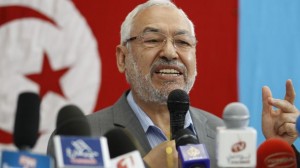Special to WorldTribune.com
WASHINGTON — The new ruling Islamic parties have been preaching
economic conservatism in their vision for the Arab world, a report said.
The Carnegie Endowment for Peace asserted that the emerging Islamic
regimes in the Arab world refrained from proposing drastic changes in the
economy.

In a report titled “The Economic Agenda of Islamic Parties,”
Carnegie said the Islamic movements in countries that range from Jordan to Tunisia were seeking economic stability and government transparency.
“The Islamists are not proposing a radical change in policy in any of
these areas but are simply wagering that they will be able to manage the economy more effectively than previous regimes by pursuing policies of good governance, combating corruption and putting social justice at the heart of the process of economic development,” the report, authored by Ibrahim Saif and Muhammad Abu Rumman, said.
The report examined four Islamic movements, the ruling Ennahada in Tunisia, the ruling Justice and Development Party in Morocco, the ruling Freedom and Justice Party in Egypt and the opposition Islamic Action Front in Jordan. All four parties have presented economic agendas that the report deemed pragmatic.
“All of the parties welcome partnerships with the private sector to
implement their proposed projects, particularly when it comes to public
utilities and infrastructure,” the report, dated May 2012, said. “They
consistently agree on the need to combat corruption, strengthen the
foundations of good governance, eliminate financial and economic waste, and
enact socially just policies.”
The report said none of the four Islamic movements sought to cancel
international economic agreements. Both Morocco and Tunisia
are major trading partners of the European Union.
The Islamists have also pledged to encourage tourism. The platforms have
called for tax reform, restructuring subsidies and Islamic financing for public development.
Still, the four movements remained vague, particularly with economic
priorities and timetables. Both Ennahada and
Justice and Development were struggling to determine economic policy in
Tunisia and Morocco, respectively.
“Lacking experience, clear priorities, and ways to build and finance
ambitious growth plans, all four will face serious challenges in translating
their generally reasonable and well-intentioned economic agendas into
results,” the report said.

You must be logged in to post a comment Login